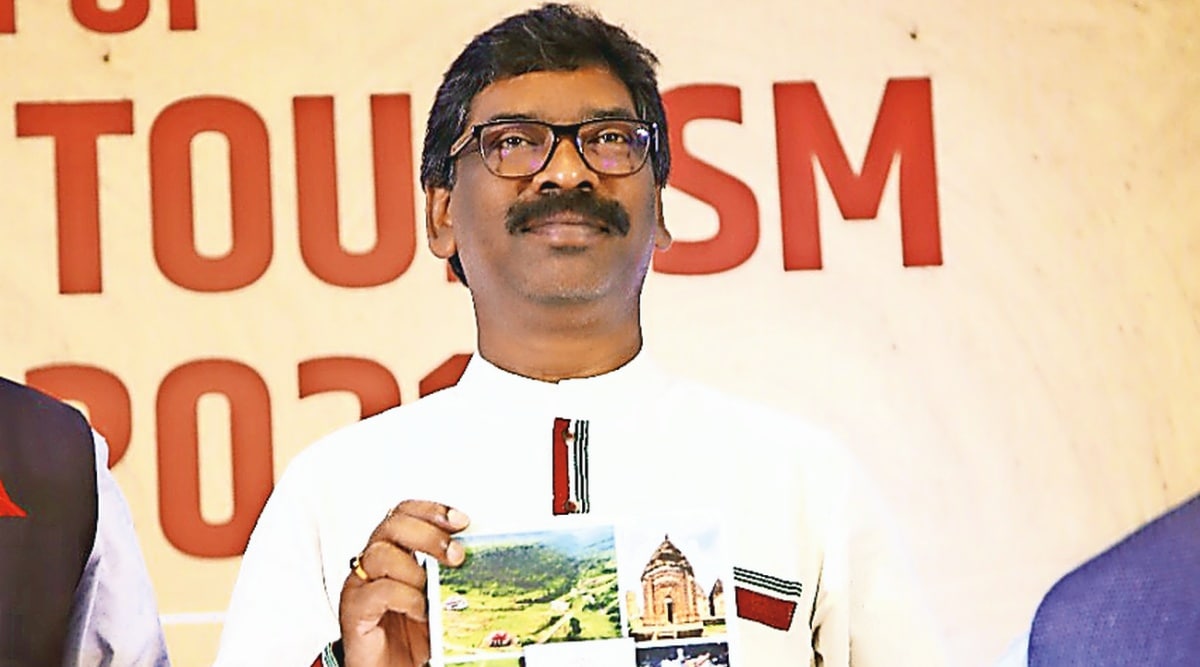Jharkhand issues PESA draft rules for consultations
PESA recognises the right of tribal communities in Scheduled Areas to govern themselves through their own systems of self-government. It acknowledges their traditional rights over natural resources.
 Hemant Soren
Hemant Soren The Jharkhand government on Wednesday published draft rules for wide-ranging public consultation for implementing The Provisions of the Panchayats (Extension to Scheduled Areas) Act — or PESA — enacted in 1996 to ensure self-governance through gram sabhas for people living in Scheduled Areas.
In Jharkhand’s case, Scheduled Areas refers to areas identified by the Fifth Schedule of the Constitution. In Jharkhand, 13 of 24 districts are under 5th Schedule.
PESA recognises the right of tribal communities in Scheduled Areas to govern themselves through their own systems of self-government. It acknowledges their traditional rights over natural resources.
According to the draft Jharkhand Panchayat Provisions (Extension to the Scheduled Areas) Rules, 2022, published through a gazette notification on Wednesday, resolving traditional and family disputes, hearing certain cases under the IPC and having fundamental responsibility of maintaining peace and order in view of the principles of the Constitution are among rights of gram sabhas under 5th Schedule areas in the state,
The draft rules have mandated eight standing committees, including for Education and Social Justice, to be working under the gram sabha, which will have at least 50% women and a minimum of 40% people from Scheduled Tribe (ST) communities. The rules mention, for instance, that the Education and Social Justice Committee will mainly work for “education, economic uplift of Scheduled Castes, Scheduled Tribes as well as weaker sections [of society] such as specially abled and primitive tribes, providing protection from social injustice.”
On the traditions and customs, the rules say: “The Gram Sabha shall maintain the customary law, social and religious practices of the Scheduled Tribe communities residing in its area and for their protection will take necessary steps. The rules issued by the State Government in relation to the rights and responsibilities of the Panchayats will be in accordance with the social, religious and traditional management practices of the Scheduled Tribes.”
The rules say the gram sabha concerned will be the operator of the “sand ghat” (where sand is mined), or can use it for local needs at its own level.
They mention that these gram sabhas will have the fundamental responsibility of maintaining peace and order in their area of jurisdiction, keeping in view the Constitution, and the rules framed by the government. On hearing the disputes, the draft rules say: “The Gram Sabha will be able to hear the issues mentioned in Parishisht 1 (Appendix) of the Indian Penal Code, 1860.” In view of “serious crime-related issues”, gram sabhas will “immediately inform the nearest police station in-charge”.
However, it is not clear from the draft rules what the issues under relevant IPC sections are that the gram sabha may or may not hear.







